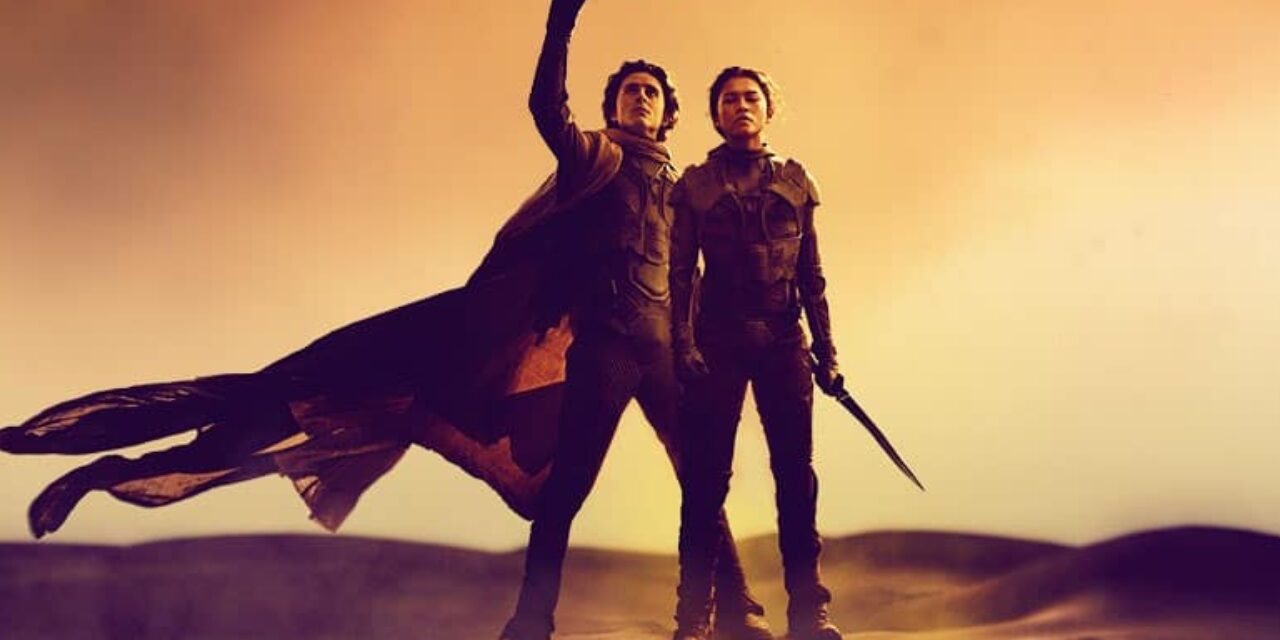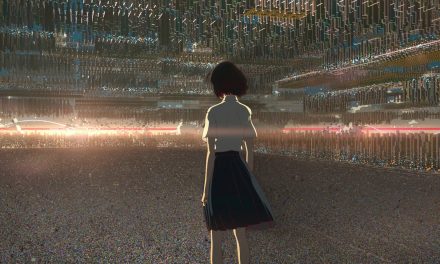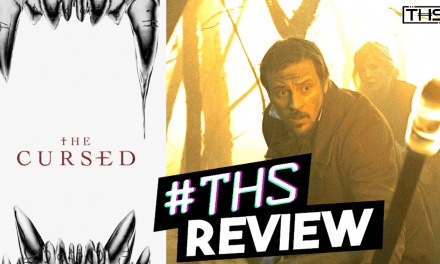When I walked into the theater for Dune: Part Two (Read our review here!), I was both anticipating the best and the worst. I have yet to be disappointed by a Denis Villeneuve film. Each new film he creates is more grand than the last. He continues to try new things. Dune: Part One was a film I was very unsure of. I never read the novels, but Dune, even according to fans, seems to be a book that doesn’t translate well to the screen. I was shocked when I walked out of the first film feeling captivated. I was excited to see the next movie. Now it’s here.
Denis Villeneuve is a director and writer who isn’t afraid of taking risks. His filmography is full of large, ambitious projects. He blends artistry and nuance into big-budget productions. Dune: Part 2 is another one of those major risks. You can tell just from the trailers. It has a variety of both big and small-scale challenges. For some directors, they wouldn’t have even tried to make Dune. Villeneuve is giving us multiple Dune films. Not only is he banking on success, but he’s ready to make the next film after it. So what makes this film so risky?
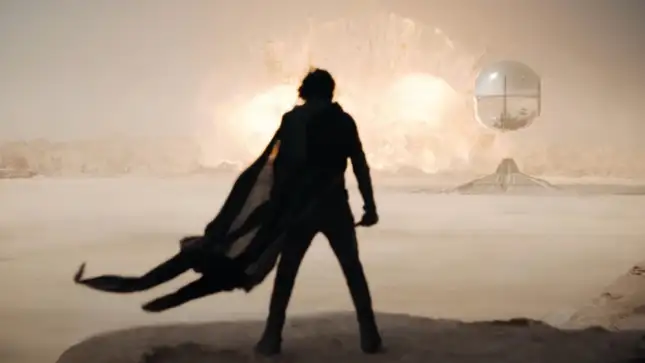
Stories In Parts
If you are like me, you walked into Dune in 2021 thinking you’d see a complete story told in 150 minutes. Instead, we all got part one of what Villeneuve is considering a 3 part story. Since many people weren’t expecting a trilogy or even a sequel, the ending of the first film left people clamoring for the ending or at least the next chapter. Nearly two and a half years later, people are walking into a second chapter of Dune with lofty expectations. The original film was nominated for Best Picture at the Academy Awards. In fact, it would get ten nominations in 2022. It won 6. How do you meet that standard, let alone top it?
Choosing not to end the story with Dune: Part Two means that audiences are still not going to get an ending worthy of the story. I’m not saying it’s a bad ending. I really loved the journey I went on with this film, but like other films within sagas, you aren’t getting the full arc of the story. That’s a tough act to sell. Choosing not to advertise a third chapter is wise to get people to theaters, but the film has to be fantastic in order for people not to feel tricked. This isn’t my review of the film per se, but I did not leave disappointed. I do not feel tricked. In fact, I wish I could see the next part of the story.
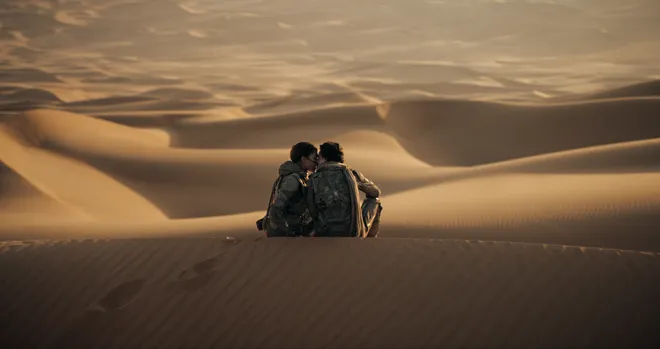
Making The Desert Interesting
Another aspect of making Dune: Part Two is that it mostly takes place on Arrakis, a planet made entirely out of sand. How do you go about making a place that is just one color look good? How do you add texture and layer to that landscape? Would audiences buy into a near three hour romp through the desert? Yes, there are scenes that take place off of Arrakis. There are even indoor locations, but 80% of the movie is outdoors in the sand. This is where Denis Villeneuve perfects cinema. Like many of his other films, he uses color grading and lighting in order to make his films visually appealing. He pans out to ultrawide shots that show both the beauty and the horror of Arrakis. He also uses close-up shots of characters, giving his actors the opportunity to showcase emotional storytelling.
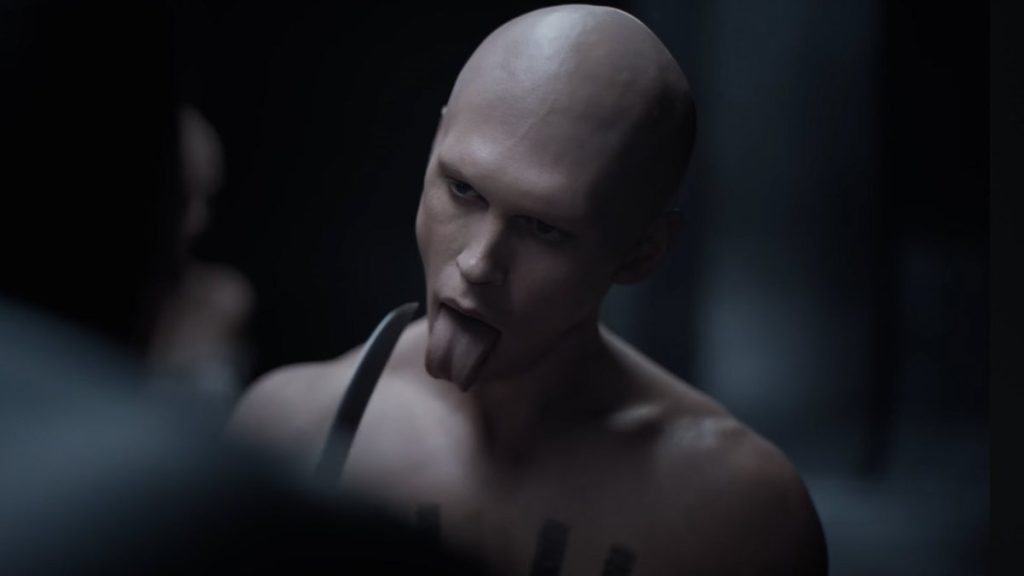
Austin Butler Is A Creepy Little Guy
Speaking of actors, I think one of the biggest risks for Dune: Part Two is the casting of Austin Butler. I’m not saying anything negative about him. (I see you Butler fans on my social media timeline. Chill out!) Like many, I think his breakout role in Elvis gained him both notoriety and also stereotyped him. Similar to how Leonardo DiCaprio was typecast as the pretty leading man in romance stories in his early career. Many didn’t think they could buy Humprey Bogart as anything but a gangster or troubled private eye back in the Golden Age of Hollywood. Even more recently, Robert Pattinson had to shed the pretty vampire perception. I think many see Austin Butler as the handsome guy who played Elvis.
It’s an interesting choice to cast him in Dune as Feyd-Rautha. It’s a villainous character who is charismatic, but not in a fun way. He’s the type of creepy guy who stares at you with a blank smile on his face. It’s such a polar opposite from Elvis that an audience might not buy it. In this case, it’s as much a risk for Dune’s success as it is for Austin Butler’s success. I’m sure he is tired of people asking him about Elvis. I’m sure he’d like to not do the voice any longer. Will audiences buy him as the villain?
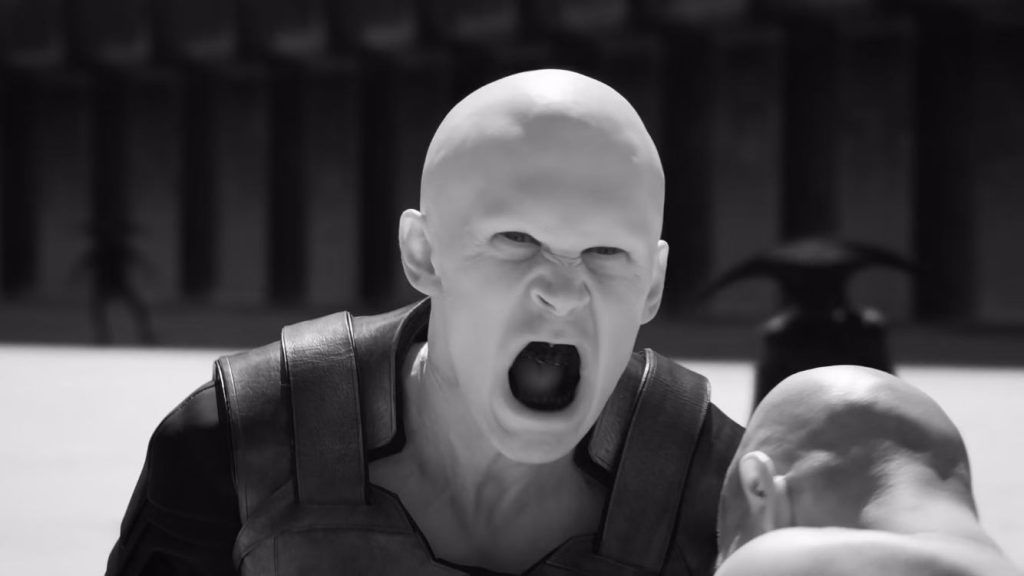
Black And White Worlds
It’s become more common, but transitioning from color to black and white in a film is risky. I talk about movies often, since it’s my profession, and I often hear from people that “old black and white” movies bore them. Just the use of black and white makes it feel older. In terms of storytelling, in a movie like Oppenheimer, it’s a visual guide. That visual guide, however, doesn’t always translate to general audiences. Villeneuve is assuming his audience is smart enough to understand. He uses black and white to show the difference between Arrakis and Geidi Prime, the home of the Harkonnen family. Will everyone seeing the movie get that? Probably not, but Villeneuve is still choosing to do it.
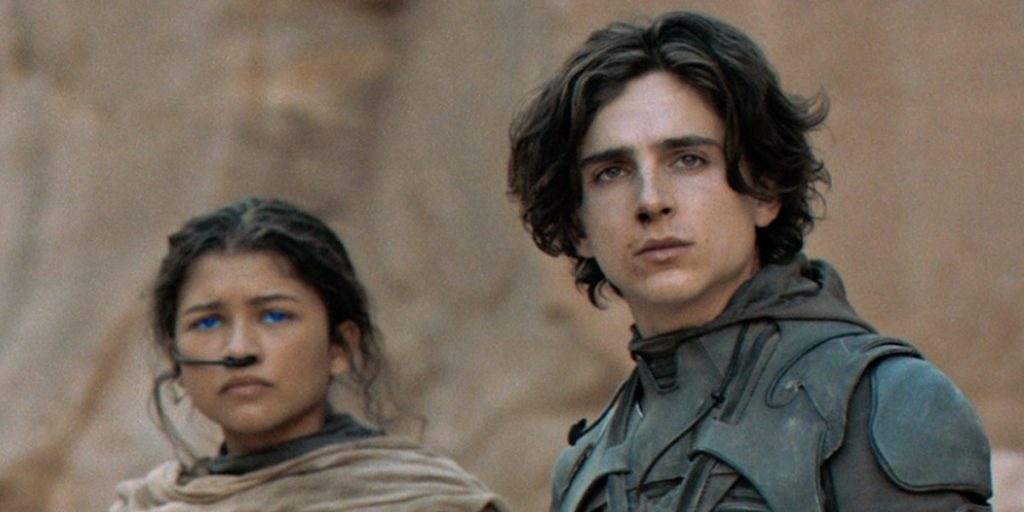
Is The Risk Worth The Reward?
Even in 2024 as the film debuts in theaters, there are many turned off by subtitles, which this film has. The dialogue is also fairly complex which could be a turn-off. Plus the film is just under three hours long. If you’ve paid attention to conversations around film, the length of movies has been a major debate.
Because the first Dune film from 2021 debuted simultaneously on Max the same day as it went to theaters, Dune is somewhat unproven as a franchise. We will never know if the first film would join the “Billion Dollar Club”. Despite the same day release, the original still made over $400 million at the box office. Hopefully that’s a good sign for Dune: Part Two.
For many, this film might seem like an automatic win for Warner Bros. Discovery and Legendary Films, but we live in a strange time. Box office domination is no longer certain. I’d love to see its success. The better the film industry is doing, the better off I am after all. Even beyond my own benefit, I’d like to see Villeneuve’s blend of artistry and storytelling continue to shape Hollywood. Yes, this is a sequel in a franchise, but it’s a risky, complex story. This isn’t the average blockbuster movie. I’d like to see more not-so-average films in theaters. Is the risk worth the reward? Time will tell.
For more on Movie News, make sure to check back to That Hashtag Show.

